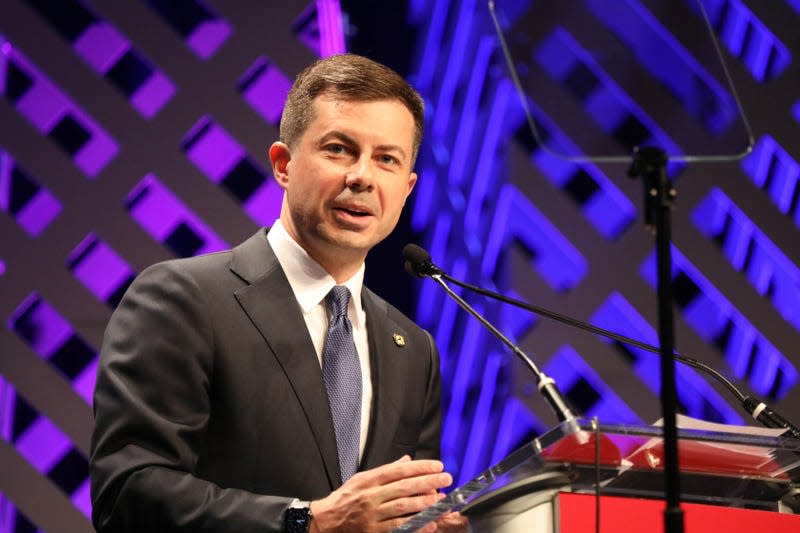The Bipartisan Infrastructure Law is Cool, But How Will it Benefit Black Communities?

Secretary of Transportation Pete Buttigieg stopped by our parent company G/O Media’s offices this week to talk about President Biden’s Bipartisan Infrastructure Law, a $65 billion investment in our country’s roads, bridges and railways. The law includes a plan to expand access to clean drinking water and high-speed internet and create sustainable union jobs that give more Americans a path to the middle class.
But as we know, some of this country’s best laid plans don’t always include our community. So we wanted to take the opportunity to go straight to the source and ask Secretary Buttigieg just how this new law will benefit Black people.
Read more
Buttigieg admitted that the country’s infrastructure projects have not always helped connect African Americans to people and opportunities. In fact, they often do the opposite.
“The Cross Bronx Expressway is one of tons of examples of how infrastructure often actively divided Black and Brown neighborhoods. And we can do something about that,” he said. He pointed to a recent announcement by the federal government to spend over $100 million to fund a project that revamps Detroit’s I -375, which destroyed the largely-Black Paradise Valley entertainment district and Black Bottom residential neighborhood when it was built in the late 1950s. “The plan is to elevate it into a boulevard so it will actually be an asset instead of a dividing line,” he said.
Secretary Buttigieg also pointed out that the new infrastructure projects would bring good-paying, sustainable construction jobs to communities of color and give many families a point of entry to the middle class. But he added that the government needs to do its part to support workers of color, particularly women, solve the problem of access to affordable child care and transportation.
“We’re funding things like workforce development and the ability for workers to get paid while training for these good paying jobs,” he said.
Buttigieg says he hopes to use his position to help right the wrongs of the past.
“The fact that we have a phrase ‘wrong side of the tracks’ in American English and what that means tells you everything you need to know about the historic relationship between infrastructure and racial inequality. So we’re working on things that will help in that way,” he said. “We know enough to do so much better in the 2020s than America did the last time this kind of Federal money went into transportation.”
One thing’s for sure, Secretary Buttigieg. We’ll be watching.
More from The Root
Sign up for The Root's Newsletter. For the latest news, Facebook, Twitter and Instagram.
